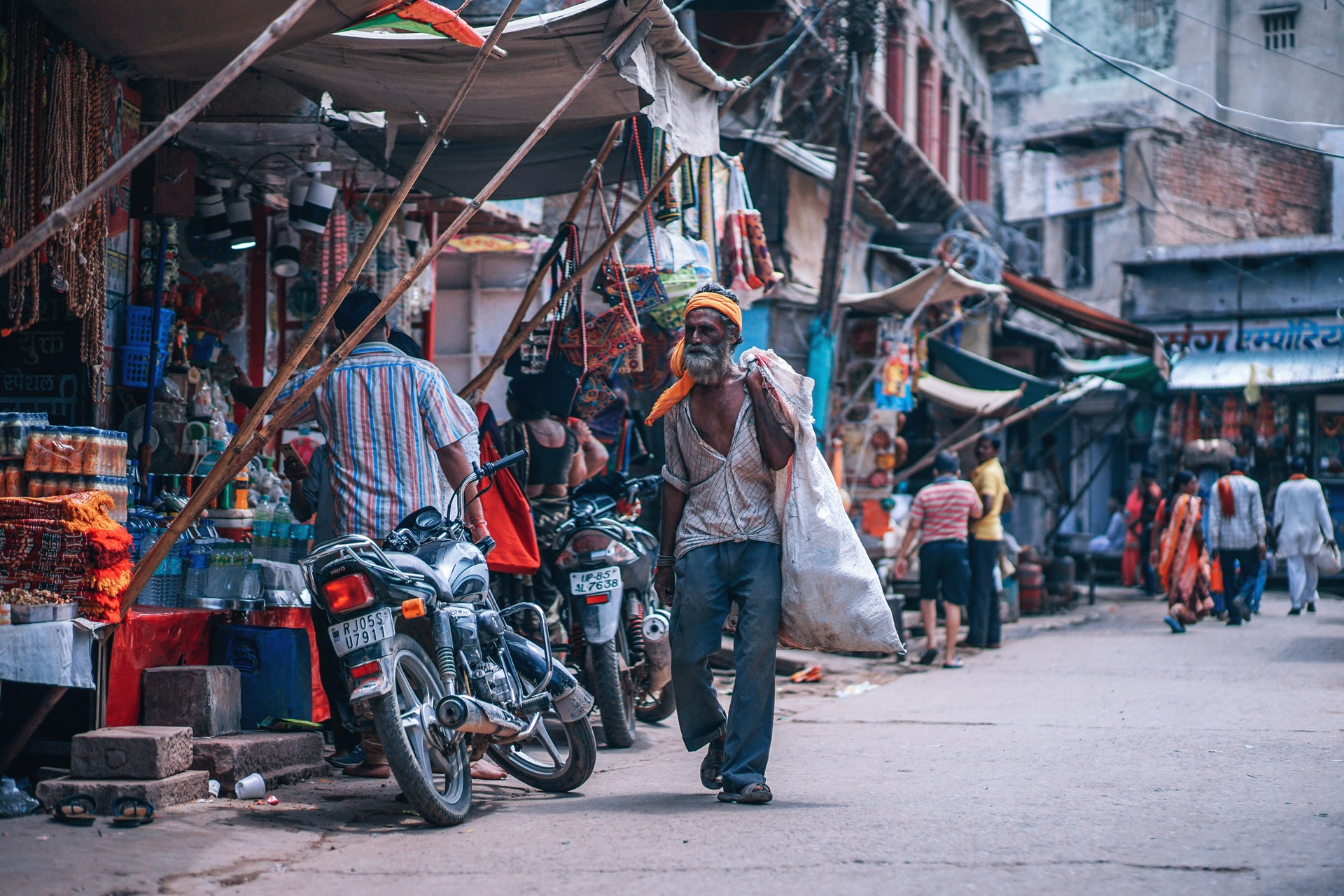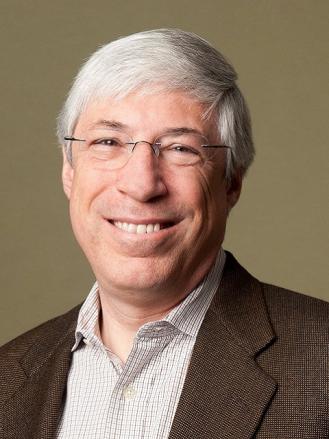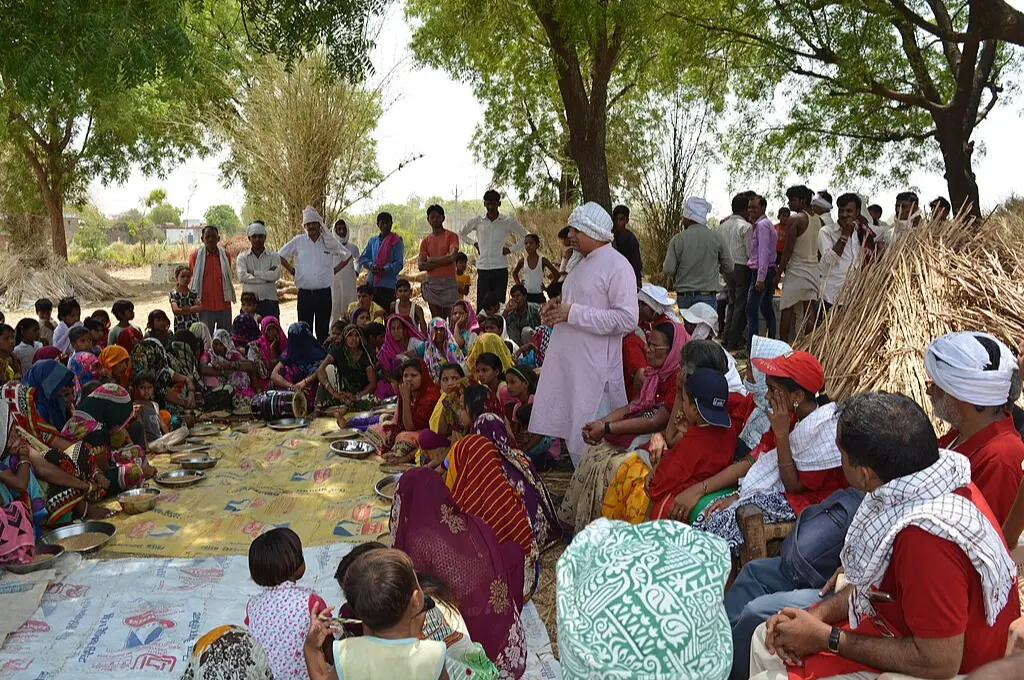This is an exciting time for social innovation. Billions of dollars are flowing into philanthropy, market-driven solutions and social entrepreneurship are flourishing, and social impact consulting and impact investing have become established professions. Yet, in Winners Take All: The Elite Charade of Changing the World, Anand Giridharadas, a former New York Times foreign correspondent, explains why we should not be so quick to celebrate these advances.
“Business elites are taking over the work of changing the world,” Giridharadas observes. “Many believe they are changing the world when they may instead—or also—be protecting a system that is at the root of the problems they wish to solve.”
Giridharadas uncovers the internal contradictions of those who work for social change from positions of privilege and wealth. He also delves into the shortcomings of strategy consultants who bring McKinsey-style analysis to social issues; the limitations of venture capitalists who fund social solutions; and the problems with thought leaders who give well-paid speeches preaching win-win opportunities for business and society.
It is an important book that challenges those of us working for social change within existing systems of power to consider whether we are inadvertently perpetuating the problems we seek to solve. It is also a very personal challenge to me, as I represent the very type of person who so worries Giridharadas: I am a former venture capitalist, cofounder of a social impact consulting firm, and a proponent of for-profit solutions to social problems. From my perspective, it is a highly engaging yet sobering experience to read this book, and it imparts new insights into the limitations and compromises inherent in the way I and many of my friends and colleagues have chosen to work for social progress.
If this book were an uninformed diatribe against capitalism, it would be easy to dismiss. But Giridharadas understands both sides of these issues. He is a former McKinsey consultant who once embraced the approaches he now rejects. He knows the scene at Davos, Aspen, and the Clinton Global Initiative, and he is friends with many of the philanthropists, foundation presidents, venture capitalists, and social entrepreneurs whom he profiles.
Related article: The predicament of strategic philanthropy
This book, Giridharadas writes in the epilogue, is intended as a personal letter to his well-intentioned friends to wake them up to dangers they may not see. That empathetic tone gives the book its persuasive power to touch the hearts of even those readers, like myself, who are the targets of its criticism.
Giridharadas raises thought-provoking questions that have made me think long and hard about my life’s work. Are the winners of our capitalist system—intentionally or not—redefining the world’s problems in ways that avoid questioning their own business practices, power, and wealth? Have we lost the essential premise of a just society when we substitute private action by individuals for government policy and public debate?
Quoting the writer Audre Lorde’s dictum “The master’s tools will never dismantle the master’s house,” Giridharadas suggests that we will never achieve social justice through “a system that perpetuates vast differences in privilege and then tasks the privileged with improving the system.” The problem, as he sees it, is not just that those with privilege cannot truly understand the needs of those without, but rather that the mechanisms inherent in creating economic inequality cannot be used to reverse the imbalance.
[quote]We can talk about what the victim can do to fix the problem, but not about what the perpetrator must do to avoid perpetuating the problem.[/quote]And he has a point. Capitalism may be credited with lifting 500 million Chinese people out of poverty, but its recent effects in the United States have been far less beneficial. While US productivity rose 72 percent from 1973 to 2014, worker pay rose during the same period only 9 percent. The wealthiest have seen their incomes triple in recent years, while the incomes of more than 117 million Americans grew only from $16,000 to $16,200. Globally, wealth has increasingly concentrated: A few years ago, 300 people had the same resources as half the world’s population. Today, only eight people control that much wealth. The widespread prosperity that capitalism once promised no longer seems to happen.
Giridharadas makes his case by sharing the stories of many different people who struggle with the subtle compromises inherent in working for the public good without giving up their own privilege. The dilemma comes in many guises. Hilary Cohen must decide between a career at McKinsey and a small nonprofit; both promise social impact, but how is she to compare the purity of the nonprofit’s mission against the power and money of McKinsey? Laurie Tisch is a major philanthropist who has given away millions but still can’t overcome ambivalence about her wealth. Harvard Business School professor (and FSG cofounder) Michael Porter believes that profit is a powerful incentive to scale social impact but sees many companies optimizing profit at the expense of their employees and customers. Whoever tries to reconcile wealth with social justice lives a life of contradiction and unease.

Photo courtesy: Pexels
The same issues face thought leaders who, in Giridharadas’ estimation, offer “an easy idea that gives hope while challenging nothing.” For example, Amy Cuddy, a Harvard University social psychologist whose 2012 TED talk on how women can use powerful body language to overcome gender bias went viral, has learned that her popularity depends in part on not blaming men for having created that bias in the first place. Social impact consultants are equally compromised because they cannot afford to displease their clients. Many of Giridharadas’ stories share the same theme: We can talk about the victim and what she can do to fix the problem, but not about the perpetrator and what he must sacrifice to avoid recreating and perpetuating the problem.
As for market-driven solutions, Giridharadas interviews Silicon Valley’s “rebel-kings” of venture capital—who are ready to disrupt any system other than their own engines of wealth creation. Consider the example of Even, a VC-backed app designed for the millions of people with unpredictable incomes due to erratic shift schedules. For an annual fee of $260, the app calculates a person’s average earnings and reserves any excess earnings for the weeks when they earn less. Even is helpful when it comes to managing unpredictable cash flow, although it doesn’t solve other problems caused by erratic work schedules, such as scrambling to find last-minute childcare. Yet, isn’t something wrong when investors hope to make millions by asking those on the edge of poverty to spend their own money to fix a problem caused by the profit-maximizing choices of wealthy corporations? Would it not be better to enact labor laws that prohibit this “dynamic scheduling” in the first place?
“No one will say what could be said,” Giridharadas concludes, “that these precarious lives could be made less precarious if the kind of men who donated to [philanthropy] made investments differently, operated companies differently, managed wealth differently, donated to politicians … [and] lobbied differently.” Even Darren Walker, president of the Ford Foundation, has learned that he must “inspire the rich to do more good but never ever tell them to do less harm; inspire them to give back but never ever tell them to take less.” It is always the victims who are told by the winners that they must change, never the other way around.
Related article: The needle has swung the wrong way: It’s time for India’s philanthropy reckoning
What is the alternative? Giridharadas, quoting a Baha’i saying, contends that “[s]ocial change is not a project that one group of people carries out for the benefit of another.” Instead, he continues, we must solve problems “together in the public sphere through the tools of government and in the trenches of civil society … that give the people you are helping a say in the solutions [and] offer that say in equal measure to every citizen.”
Certainly, government ought to be the answer. Yet, the very same winners Giridharadas criticizes have co-opted government to advance their wealth, plunder the Earth, and destroy the safety net depended upon by millions.
Giridharadas is right about the dangers of letting the winners shape solutions and the paradox of helping those who suffer from our economic system without changing that system. But not all winners are the same. We must remember that there are winners who act ethically, too—those who acknowledge the need for higher taxes, better labor laws, and environmental protections. Today’s short-term, exploitive, unregulated, and highly inequitable form of capitalism isn’t the only model. The two decades following World War II, for example, produced genuine increases in well-being, at least for a majority of white Americans, supported by strong antitrust and bank regulations, unionization, stable employment, environmental protections, and tax rates as high as 91 percent.
In my own experience, there is a better answer to the systemic problem that Giridharadas exposes. Approaches such as cross-sector coalitions using the collective impact framework, “positive deviance” problem-solving strategies, and human-centered design all bring the insights of those we hope to help to those who have the power to make change in ways that circumvent at least some of Giridharadas’ concerns. Besides, we must acknowledge that activist mega-donors from Silicon Valley, global corporations, social entrepreneurs, strategy consultants, and impact investors have brought dynamic and powerful new ways of achieving social impact. It would be an immense loss if we completely rejected the innovations they have brought.
[quote]We must keep the winners engaged, but we must also hold them accountable.[/quote]Yet, we must also heed Giridharadas’ warning: If we are blind to the self-interest that delimits their innovations, if we dare not offend these new masters by acknowledging their conflicts of interest and hypocrisies, if we pretend that social justice can be achieved without changing the government corruption or the cruel and exploitive version of capitalism that exists in our country today, then we are deluding ourselves with false hope. We cannot have our cake and give it away too. We must keep the winners engaged, but we must also hold them accountable.
Winners Take All has given me due reason for reflection. I will continue to use the tools I have but with a new appreciation for their inherent biases and limitations. It is too tempting to redefine problems in ways that please the winners and burden the victims. We must be willing to name and oppose the tendencies of business that perpetuate injustice, regardless of how much it costs or who we offend. We must enable the victims to help shape the solutions. We must hold government accountable to serve the public good. And we must be alert to those subtle but crippling compromises that enable us to combine a life of wealth and privilege with the pursuit of social justice.
This article was originally published on Stanford Social Innovation Review. You can read it here.





